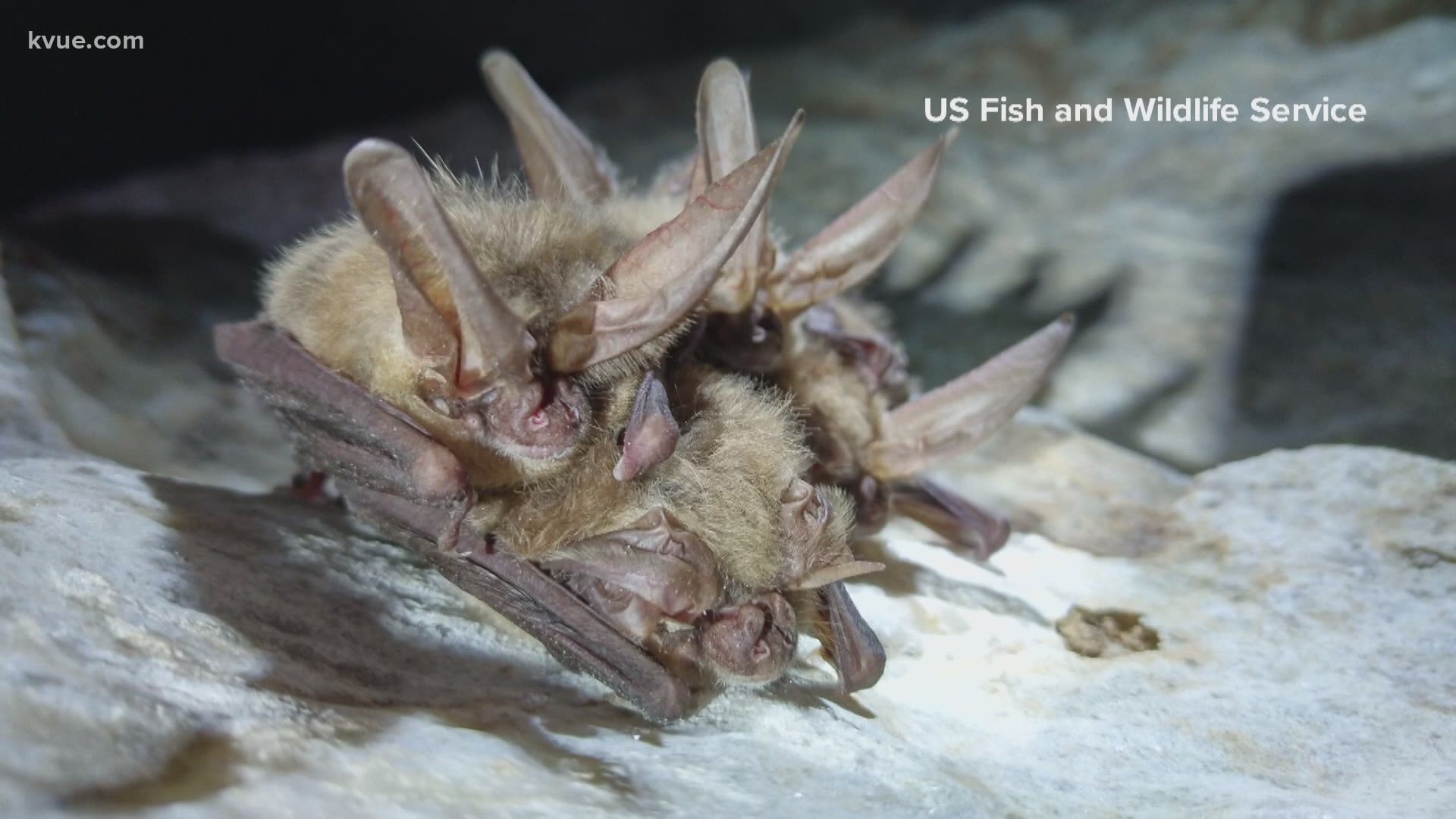AUSTIN, Texas — A new study from U.S. Geological Survey scientists has found that Mexican free-tailed bats, a colony of which lives under the South Congress bridge near Downtown Austin, can come down with COVID-19. However, they seem unlikely to get sick from it or spread the virus.
According to the report, which was posted on July 18, of the nine bats inoculated with the virus, five became infected. These five bats also orally excreted moderate amounts of the virus for up to 18 days after inoculation.
"These five subjects all seroconverted and cleared the virus before the end of the study with no obvious clinical signs of disease. We additionally found no evidence of viral transmission to uninoculated subjects," the scientists wrote.
While there may have been no evidence of viral transmission, researchers did note that there is still a "distinct possibility" of transmission of the virus to or from humans which could require further investigation to better define.
Mexican free-tailed bats, given the scientific name of Tadarida brasiliensis, live in large colonies across the southern U.S. They are often found in urban areas, much like Austin, meaning they could be exposed to the virus from infected humans.
The virus, SARS-CoV-2, originated from wild bats in Asia, sparking a pandemic that is now continuing into its third year.
PEOPLE ARE ALSO READING:

